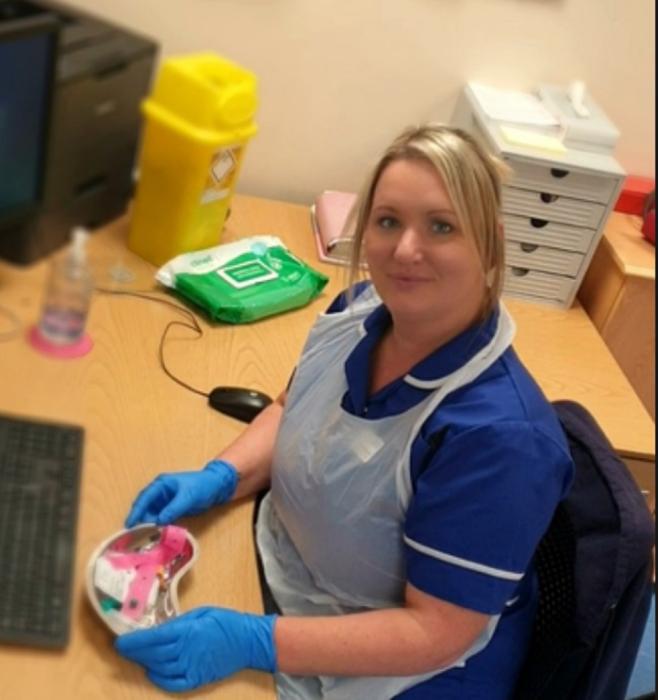You are here
Lauren reflects on her role as a Trainee Nursing Associate
3 February 2023

Lauren Harrison is a recent graduate of the Trainee Nursing Associate (TNA) programme within the Greater Manchester Primary Care Integrated Care System. The nursing associate is a new support role in England that bridges the gap between healthcare support workers and registered nurses to deliver hands-on, person-centered care as part of the nursing team.
We spoke to Lauren to find out more about her achievements, why she signed up to be a nursing associate and her advice to others.
Tell us about yourself and why did you want to become a nursing associate?
I initially worked as a receptionist at a GP surgery which gave me a good insight into general practice. I knew I wanted to remain in primary care and trained to be a healthcare assistant. When the opportunity arose to stay working at the practice, achieve a qualification, whilst receiving my normal wage, it was something I could not pass up.
How have you benefited from the nursing associate role?
The Nursing Associate degree ensures that I meet the standards expected of any professionals entered onto the NMC register. Having an NMC PIN means that with the support and supervision of a registered nurse mentor, I can take on extra tasks within the practice, for example, chronic disease reviews, vaccinations, and cervical cytology.
How have you benefited from the nursing associate role?
The Nursing Associate degree ensures that I meet the standards expected of any professionals entered onto the NMC register. Having an NMC PIN means that with the support and supervision of a registered nurse mentor, I can take on extra tasks within the practice, for example, chronic disease reviews, vaccinations, and cervical cytology.
I am more confident in my practice and I conduct more holistic reviews of the patient’s needs. Completing the degree has given me research skills that help me to identify reliable sources of medical information. I have learnt to reflect on my practice, learning from our experiences and considering how we can improve our care. Being a registered Nursing Associate has enabled me to take on new roles in practice and I am currently completing my training for cervical cytology.
I am very proud to be able to be part of this programme.
What are the challenges of the role?
Sometimes time can run away with itself trying to juggle working, learning, and home life. You have to learn to plan, and think ahead because then the study can be hard to manage on top of work and home life.
Do you have any advice for people considering becoming a Trainee Nursing Associate?
It is a rewarding career, and every day is different. If you enjoy supporting others, then this is definitely a great route to take. During my training, I met many TNAs from a variety of backgrounds and the adaptability the role can offer is a real bonus. It is a clear career progression now available to become a registered nurse.
To find out more about how to establish Trainee Nursing Associate roles in your area contact Michael McNamee, Workforce Lead for Nursing and Midwifery
This Page was last updated on: 3 February 2023